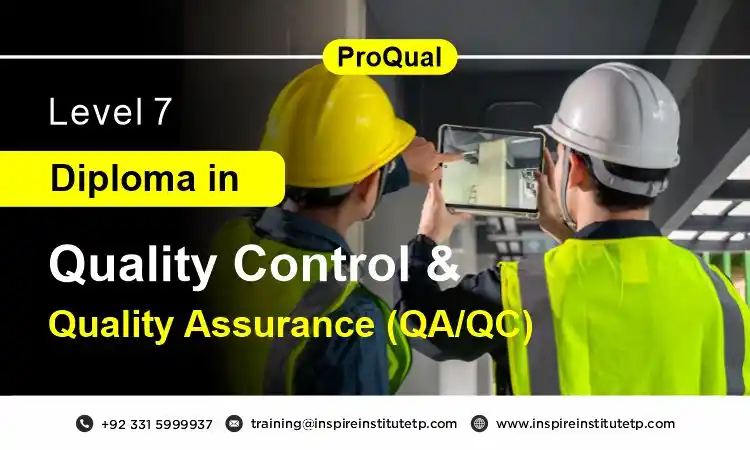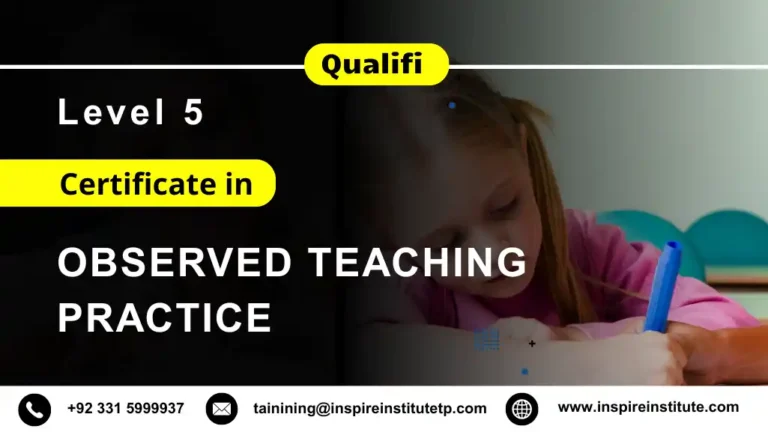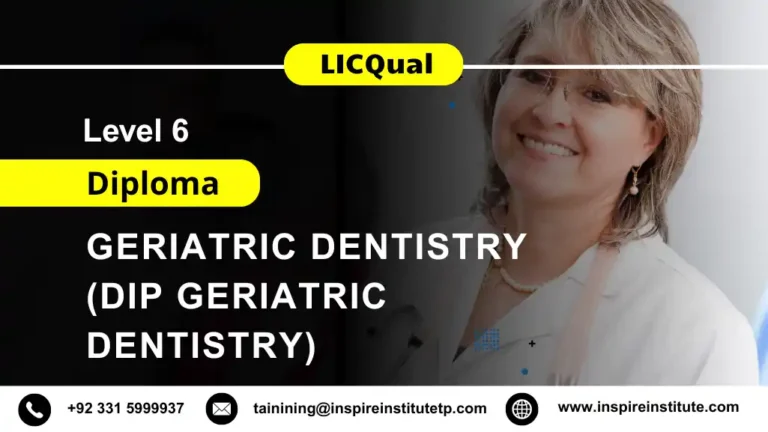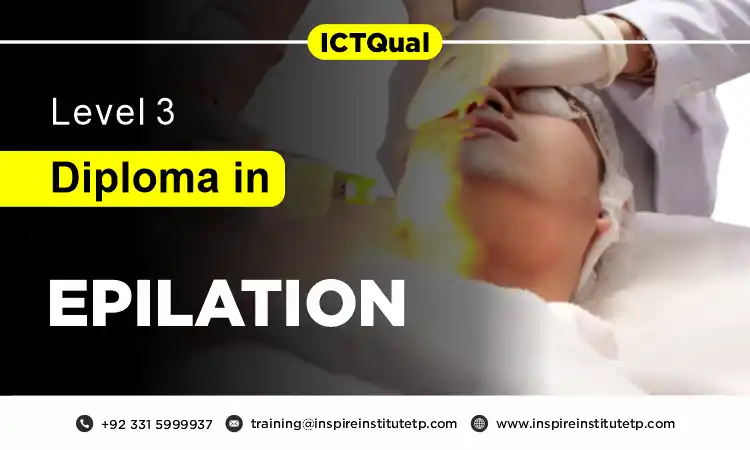ProQual Level 7 Diploma in Quality
Control & Quality Assurance (QA/QC)
The ProQual Level 7 Diploma in Quality Control and Quality Assurance (QA/QC) is a high-level qualification designed for experienced professionals seeking to enhance their expertise in quality management. Focused on strategic and advanced QA/QC practices, this diploma provides in-depth knowledge and skills required to lead and manage quality assurance and control systems within various industries. It covers topics such as quality management frameworks, process optimization, risk management, and advanced auditing techniques. Ideal for senior professionals and leaders in quality management, this qualification enables individuals to take on top-tier roles in quality assurance, control, and continuous improvement, driving organizational success and maintaining high standards across complex projects.
Why Choose this Qualification
The ProQual Level 7 Diploma in Quality Control & Quality Assurance (QA/QC) is an advanced qualification designed for professionals who want to deepen their expertise in quality management practices. Here are several key reasons why individuals and organizations should consider choosing this qualification:
1. Advanced Knowledge and Skills
This diploma is tailored for individuals looking to develop an in-depth understanding of quality control and quality assurance. It provides advanced knowledge of the principles, tools, and techniques used in QA/QC, equipping you with the skills necessary to manage and improve quality processes within an organization.
2. Career Advancement
Completing the ProQual Level 7 Diploma can open doors to higher-level positions in quality management. This qualification is often sought after by employers in sectors such as manufacturing, construction, engineering, and healthcare. It provides a competitive edge for roles such as Quality Manager, QA/QC Lead, and other senior leadership positions.
3. Industry Recognition
ProQual is a well-respected awarding body that provides high-quality, internationally recognized qualifications. Earning a Level 7 Diploma demonstrates that you have achieved a high level of professional competency in quality assurance and control, which can improve your credibility within your industry.
4. Comprehensive Coverage
The course covers a wide range of key areas in QA/QC, such as risk management, auditing processes, implementing quality management systems, compliance with industry standards, and continual improvement strategies. This holistic approach ensures you gain a thorough understanding of quality management across different stages of production or service delivery.
5. Practical Application
The qualification is designed not just for theoretical learning but also for practical application. It encourages the implementation of quality management systems, tools, and methodologies in real-world settings. By completing the diploma, you will be well-equipped to apply your learning directly to improve quality practices within your organization.
6. Global Relevance
The principles and practices of quality control and assurance are universal. Whether you’re working in a local or international context, the skills and techniques gained through this qualification are transferable, making you an asset to any organization operating across multiple regions.
7. Improved Efficiency and Risk Management
A strong focus of the qualification is on enhancing organizational efficiency through quality control and assurance. You will learn how to identify and mitigate risks, ensuring that processes and products consistently meet the required standards. This can lead to cost savings, reduced waste, and increased customer satisfaction.
8. Networking Opportunities
While completing the diploma, you will likely have opportunities to engage with other professionals in the field, exchanging ideas and experiences. Networking with industry peers can provide valuable insights and foster professional growth.
9. Flexibility in Learning
The ProQual Level 7 Diploma offers flexible learning options, allowing you to balance study with professional commitments. Many learners can pursue the qualification through blended learning, with the possibility of studying part-time or online, providing a tailored approach that fits your lifestyle.
In conclusion, the ProQual Level 7 Diploma in Quality Control & Quality Assurance (QA/QC) is a valuable qualification for professionals aiming to advance their careers, develop critical quality management skills, and achieve higher standards of operational excellence. Its global recognition, comprehensive curriculum, and practical focus make it a top choice for anyone seeking to excel in the field of quality control and assurance.
Course Overview
Awarding Body: ProQual
Course Level: Level 7
Average Completion Time:
6-18 Months
Mandatory Units:5
Evidence & Assignment Based
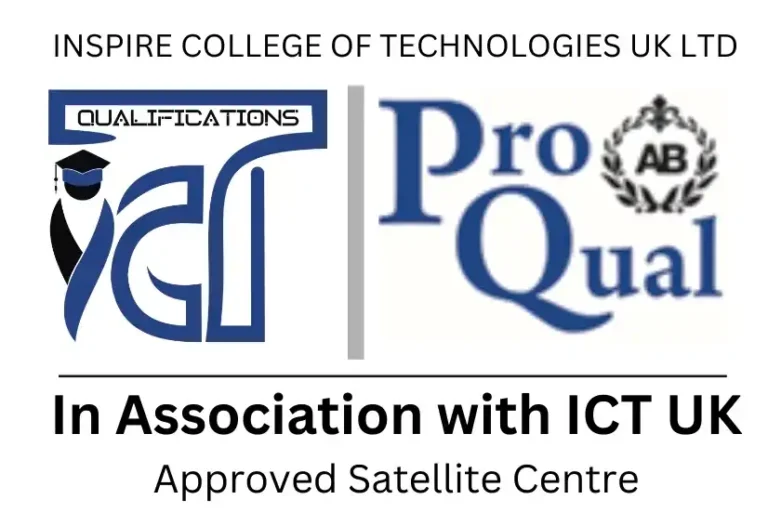
Inspire Institute of Technologies is Approved Satellite Centre of ProQual
Qualification Structure
This qualification consists of five mandatory units. Candidates must complete all mandatory units to complete this qualification.
Mandatory Units
| Unit Title | Unit Level | GLH |
| Strategic Quality Management | 7 | 60 |
| Advanced Quality Auditing and Inspection Techniques | 7 | 60 |
| Statistical Methods for Quality Control | 7 | 60 |
| Quality Assurance in Manufacturing and Service Industries | 7 | 60 |
| Risk Management and Mitigation in QA/QC | 7 | 60 |
| Lean Six Sigma and Process Optimization | 7 | 60 |
| Advanced Quality Management Systems (QMS) | 7 | 60 |
| Supplier Quality Management and Control Strategic Quality Management | 7 | 60 |
| Regulatory Compliance and Standards in QA/QC | 7 | 60 |
| Research and Development in Quality Control | 7 | 60 |
Who Should Take This Course
The ProQual Level 7 Diploma in Quality Control & Quality Assurance (QA/QC) is an ideal qualification for professionals who are seeking to advance their careers in quality management, as well as those who wish to deepen their expertise in the field of QA/QC. Below are the key groups of individuals who should consider taking this course:
1. Experienced Quality Professionals
This course is well-suited for individuals who already have a background in quality management and are looking to elevate their expertise. If you are currently working in quality control or quality assurance and wish to formalize and expand your knowledge, this qualification will help you refine your skills and gain the advanced competencies needed to take on more strategic and leadership roles.
2. Quality Managers and Supervisors
For professionals in leadership roles within quality management, the ProQual Level 7 Diploma provides the necessary knowledge to implement and manage advanced quality systems effectively. If you are a quality manager or supervisor, this qualification will help you further hone your skills in quality process improvement, compliance, auditing, and risk management, preparing you for senior-level positions.
3. Compliance and Regulatory Professionals
Individuals who work in compliance, risk management, or regulatory affairs within industries such as manufacturing, healthcare, construction, and engineering can benefit significantly from this course. As quality assurance and control are often closely tied to regulatory requirements, the knowledge gained from this qualification can assist in ensuring your organization meets industry standards and stays compliant with relevant laws and regulations.
4. Auditors and Inspection Professionals
If you are an auditor or involved in inspection activities, this course will enhance your ability to assess quality systems, identify areas of improvement, and conduct thorough quality audits. The qualification covers auditing methodologies, risk management, and quality control techniques, which are crucial for professionals whose job requires assessing the effectiveness and compliance of quality systems.
5. Project Managers in Quality-Driven Industries
Project managers working in industries where maintaining high-quality standards is essential—such as manufacturing, construction, pharmaceuticals, or engineering—will benefit from this diploma. It will equip them with the skills needed to integrate quality management systems into their projects and ensure that deliverables meet required standards, while also managing risks and improving project outcomes.
6. Professionals Looking to Transition into QA/QC Roles
For individuals looking to move into a career in quality assurance or quality control, the ProQual Level 7 Diploma provides a strong foundation in quality management principles. If you have experience in another field (such as operations, engineering, or production) and want to specialize in quality, this qualification can help you transition and establish yourself as a skilled professional in QA/QC.
7. Senior Leaders and Executives
Senior leaders and executives who want to gain a strategic understanding of quality management principles will also find value in this course. Knowledge of how quality control and assurance impact organizational success, reduce costs, and drive customer satisfaction is crucial for anyone in a decision-making position. This course can help senior leaders implement and oversee comprehensive quality management strategies.
8. Consultants in Quality Management
If you are a consultant providing advice to organizations on quality management systems, obtaining the ProQual Level 7 Diploma will enhance your expertise and credibility. With the advanced knowledge gained through the qualification, you will be better equipped to offer high-level guidance on quality assurance and control to clients across various sectors.
9. Aspiring Quality Directors
For those aiming to eventually step into the role of a Quality Director, this diploma is an excellent choice. It provides the comprehensive knowledge needed to oversee large-scale quality management strategies, lead teams, and ensure that quality standards are consistently met across the organization.
10. Manufacturing, Engineering, and Healthcare Professionals
Professionals in industries like manufacturing, engineering, and healthcare, where precision and quality are critical, will gain significant value from this qualification. In these sectors, understanding and ensuring quality control processes are vital to producing safe, efficient, and reliable products or services.
Course Benefits
The ProQual Level 7 Diploma in Quality Control & Quality Assurance (QA/QC) offers a range of benefits for professionals seeking to advance their careers in quality management. Below are some of the key advantages of completing this course:
1. Enhanced Professional Expertise
By completing the diploma, you will gain in-depth knowledge and advanced skills in quality control and quality assurance. The course covers essential topics such as risk management, quality audits, process improvement, and compliance with industry standards. This enables you to become a subject matter expert in QA/QC and apply your learning to real-world situations effectively.
2. Career Advancement Opportunities
The qualification provides a clear pathway for career growth, enabling you to pursue senior roles within quality management. Whether you’re looking to become a Quality Manager, Head of Quality Assurance, or QA/QC Consultant, this diploma will enhance your qualifications and make you a more competitive candidate for higher-level positions in various industries.
3. Improved Decision-Making and Problem-Solving Skills
The course equips you with the skills to identify quality issues, analyze them, and implement effective solutions. You will gain a deep understanding of how to apply quality management techniques to optimize processes, reduce errors, and improve overall efficiency. These problem-solving abilities will help you make more informed decisions that drive quality improvements within your organization.
4. Industry Recognition
ProQual is a respected and internationally recognized awarding body, ensuring that the Level 7 Diploma is well-regarded across industries. Having a ProQual qualification on your resume demonstrates that you possess a high level of professional competence in quality management, making you more attractive to potential employers.
5. Practical, Real-World Application
The course is designed with a focus on practical application. You will learn how to implement and manage quality control systems, conduct audits, and ensure compliance with industry regulations. This hands-on approach means you can directly apply your learning in your current or future role, driving immediate improvements within your organization.
6. Global Relevance
The principles of quality assurance and control are universal, making the qualification highly relevant regardless of location. Whether you work in the UK, Europe, North America, or any other region, the skills and knowledge gained from this diploma will be applicable and valued across different industries and markets.
7. Increased Organizational Efficiency
By mastering quality management principles, you will be able to implement strategies that streamline processes, reduce waste, and improve product or service quality. This leads to greater efficiency within the organization, reducing costs and improving customer satisfaction—outcomes that are highly valued by employers.
8. Networking Opportunities
Throughout the course, you will have the opportunity to engage with peers, industry professionals, and instructors. These connections can provide valuable insights, share best practices, and create potential career opportunities in the future. Networking with other quality management professionals can help you stay up to date with the latest industry trends and innovations.
9. Compliance with Industry Standards
The diploma provides a strong understanding of various quality standards and frameworks, such as ISO 9001 and Six Sigma, that are vital in ensuring products and services meet required regulations and customer expectations. With this knowledge, you will be well-equipped to ensure that your organization meets the highest standards of quality, safety, and performance.
10. Flexibility in Learning
Many learners can pursue this diploma through flexible learning options, including online courses or part-time study. This allows you to balance your professional and personal commitments while advancing your qualifications. The flexibility of the program makes it accessible to busy professionals who want to continue working while enhancing their skills.
11. Increased Earning Potential
By gaining advanced qualifications in quality management, you will position yourself as an expert in the field, which can translate to higher salary expectations. Senior quality assurance roles typically come with higher pay, and having the ProQual Level 7 Diploma can give you a distinct advantage when negotiating compensation or seeking new career opportunities.
12. Confidence to Lead Quality Initiatives
The course prepares you to take on leadership roles in quality management, allowing you to confidently lead and manage quality assurance and control initiatives. You will be empowered to drive change, foster continuous improvement, and lead teams towards achieving quality excellence across your organization.
Eligibility Criteria
Educational Background: Applicants should ideally have a relevant higher education qualification, such as a degree or equivalent in a related field (e.g., engineering, business, or management).
Professional Experience: A minimum of 3-5 years of experience in a quality-related role (e.g., quality assurance, quality control, or quality management) is preferred. Experience in supervisory or management positions is advantageous.
Understanding of Quality Management: Applicants should have a basic understanding of quality control and assurance principles, though advanced knowledge is not required.
English Proficiency: A strong command of English, both written and spoken, is required to successfully complete the course assignments and assessments.
Commitment: Applicants must be committed to completing the course requirements and applying their learning in a professional context.
The Qualification Process
Here is a step-by-step guide to help you understand the entire journey from pre-registration to certification:
- Self-Assessment:
Begin by evaluating your eligibility for the course. Ensure you meet the entry requirements, such as relevant qualifications or professional experience, as outlined for the program. - Registration:
Complete your registration by submitting the required documents, including a scanned copy of a valid ID, and pay the necessary registration fee. This is your first official step in the qualification process. - Induction:
An assessor will conduct an induction session to verify your eligibility and introduce you to the evidence requirements. During this stage:- If the assessor finds that you meet all the necessary criteria, you will proceed to the next step.
- If you do not meet the entry requirements, your registration will be canceled, and your fee will be refunded.
- Evidence Submission:
Based on the assessment criteria, you will need to submit evidence demonstrating your knowledge and competence. Consult with your assessor if you need clarification on the type and nature of the evidence required. This evidence could include assignments, projects, case studies, or professional experiences related to sustainability management. - Feedback and Revision:
The assessor will review your submitted evidence and provide feedback. Evidence that meets the required criteria will be marked as “criteria met.” If there are any gaps, the assessor will highlight them, and you will need to address those gaps by revising and resubmitting the evidence. - Competence Evidence:
Submit your final evidence demonstrating that you have successfully achieved all the learning outcomes. The assessor will mark your submission as “Criteria met” once everything is up to standard. - Internal Quality Assurance (IQA):
After your evidence is approved by the assessor, the Internal Quality Assurance Verifier (IQA) will review it to ensure that the assessment was carried out consistently and according to ProQual standards. - External Verification:
The IQA then presents your portfolio to ProQual External Quality Assurance Verifiers (EQA) for final confirmation. The EQA may contact you directly to verify the authenticity of your evidence. - Certification:
Once all internal and external checks are completed to satisfaction, ProQual will issue your official certificate, confirming that you have successfully achieved the qualification.
This comprehensive process ensures that learners demonstrate all necessary competencies and meet the high standards required for the ProQual Level 7 Diploma in Quality Control & Quality Assurance (QA/QC).

